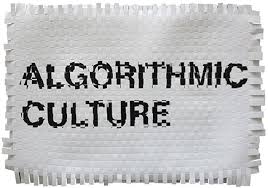 Due to a confluence of fortuitous events we declare a spontaneous mini-symposium/happening that I will call, “adventures in algorithmic culture” or “what happens when the machines want to play too?”. This event features speakers Nicolas Nova, Ben Samuel, James Ryan and Jonathan Lessard in an all out tussle of research-creation, intellectual curiosity and edginess.
Due to a confluence of fortuitous events we declare a spontaneous mini-symposium/happening that I will call, “adventures in algorithmic culture” or “what happens when the machines want to play too?”. This event features speakers Nicolas Nova, Ben Samuel, James Ryan and Jonathan Lessard in an all out tussle of research-creation, intellectual curiosity and edginess.
Drop everything and we’ll see you:
Tuesday, March 21, 2:00-5:00 PM
Milieux Institute for Arts, Culture and Technology
EV Building, Resource Room 11.705
Concordia University SGW, 1515 Sainte-Catherine St. W.
Our line up with talk titles and descriptions:
Nicolas Nova (Geneva School of Art and Design) – “Dadabots: Towards Algorithmic Cultures”
The accumulation of data (e.g. images, videos, sounds, digital traces) and their availability through programming interfaces (APIs) enable their hybridization; as attested by the use of samples, presets, sound effects in electronic music, generative art and glitches in visual arts, or the importance of Web mash-up and humoristic Twitter bots. What are the conditions for this situation? What is the role of Big Data in this? How does it work? The presentation will address these issues and argue that the automation of hybridized elements extracted from many data sources is a new form of human-machine collaboration.
James Ryan (UC Santa Cruz)- “Adventures in text generation, simulation, and visualization”
I will present brief overviews of three projects that cut across the breadth of my research agenda: Expressionist, a tool for expressive text generation; Juke Joint, a small game combining simulation and text generation; and GameSpace, an explorable visualization of the videogame medium.
Ben Samuel (UC Santa Cruz) – “Shared Authorship Through Social Simulation and Computationally Assisted Performance”
This talk introduces the notion of shared authorship, a form of interactive storytelling in which player and system collaborate to produce a narrative artifact neither would have been capable of producing independently. Two award winning pieces of shared authorship are discussed—the social simulation game Prom Week and the computationally assisted performance piece Bad News—as are the technologies that enable them.
Jonathan Lessard (Concordia University) – “Fours Years of LabLabLab: Giving Players a Voice in Computer Game Fictions”
This talk looks back at the LabLabLab’s previous and ongoing research-creation efforts to explore alternative avenues to rigid, tree-based conversational systems in computer games. We will discuss the glories and miseries of playful natural language interaction, the notion of “subjective interface”s, and the potential of generative grammar systems.
